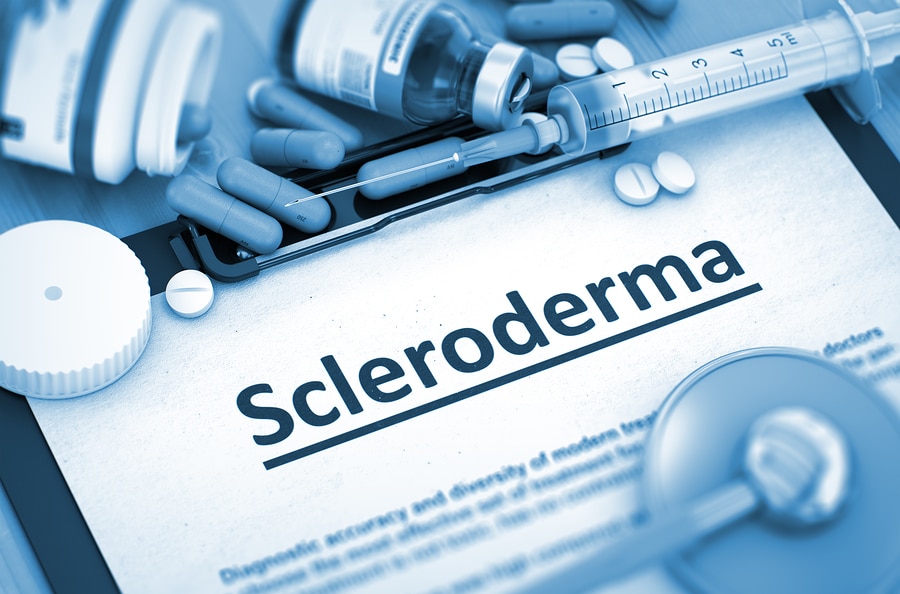June is Scleroderma Awareness Month and it’s an excellent time to learn more about the disease, which is estimated to affect more than 300,000 Americans each year. It’s not well-known, and therefore the symptoms of this chronic condition often go underdiagnosed and untreated in elderly adults. Family caregivers should get familiar with the symptoms so that they can tell when it’s time to take their elderly relatives in for medical attention.
Caregiver in Cumming GA: Scleroderma Awareness MonthWhat is Scleroderma?
This autoimmune disease causes the body to attack the connective tissues and skin, creating several different kinds of health issues. Those with scleroderma may feel swelling and pain in the joints and internally. Other symptoms include shiny, hard patches of skin, tingling or numb fingers and toes, indigestion and heartburn, and general malaise.
The danger with scleroderma is that the hardening tissues around the organs makes it harder for them to function. The connective tissues on and near the organs harden, slowing them down and reducing their efficiency. It is frequently a problem for internal organs, the digestive tract and blood vessels. Seniors are already at a greater risk for chronic diseases that affect the body and developing scleroderma may exacerbate those conditions.
What Causes Scleroderma and Who Is At Risk?
While most cases are found in middle aged women, late onset scleroderma is definitely rising. Medical experts do not know the cause of scleroderma and there is no cure as of yet. Most of the cases each year happen to women between the ages of 30 and 50, but anyone can get the disease, even seniors and children.
There are two types of scleroderma, localized and systemic. Localized scleroderma seems to focus primarily on the skin and usually internal organs are not affected. With systemic scleroderma, the disease is more serious in that it affects more of the body. Neither type should be ignored and leaving treatment for too long will definitely introduce more health issues for the elderly relative.
How is Scleroderma Treated?
With no cure and no way to get rid of the symptoms of scleroderma, seniors need the help of a doctor to come up with a treatment plan. Medicines can help control skin breakouts, indigestion issues, and pain levels. The doctor may suggest physical therapy as a way for seniors to keep flexible and maintain their limbs, so they stay responsive. In some scleroderma patients, they must undergo surgery to clear out some of the scar tissue and help the organs function better.
How Do Seniors Live With Scleroderma?
It’s not easy for family caregivers to lend a hand to their relative that is dealing with scleroderma. Seniors with this chronic disease often become unable to function due to pain, stiffness, and surgery. Hiring an elder care agency is a good way to alleviate a lot of the activities that cause problems for seniors. As the elderly adult needs more and more help, the elder care provider can help with things like bathing, dressing, housekeeping, meal prep, and companionship.
When an elderly relative is diagnosed with scleroderma, family caregivers and elder care providers can work together to keep them happy, safe and successful.
The staff at Home Care Matters is available to talk with you and your family about all of your needs. Home Care Matters is a home care agency providing quality and affordable caregiver services in Cumming, GA and the surrounding areas. Call (678) 828-2195 for more information.
Source:
http://www.scleroderma.org/site/PageNavigator/patients_whatis.html#.WxyTWUgvzIV
Valerie has the unique experience with home care as she has experienced it from both ends of the spectrum, as a caregiver and as needing care herself as a cancer survivor. Valerie says, “Taking care of someone you love is a physically, mentally and demanding labor of love.Taking care of my mom was the hardest thing I have ever done. It has given me an insight and perspective not many people understand unless you are doing it or have done it.I loved taking care of my mom.I love helping others take care of their love ones too.And now that I’ve been sick, it’s given me a whole new level of empathy and understanding for those who are sick and need help.”
Valerie’s schedule varies daily, but she loves visiting with our clients, families, caregivers, our network partners and being in the office.Says Valerie, “Every day is different, but I wake up excited about what we do, inspired by our team, clients and caregivers.I strive to be a resource to the community.I love my team and I love what we do every day. I like to think my mom would be proud.”
You can reach Valerie by email (Valerie@homecarematters.com) or in our office (770.965.4004).
- How In-Home Alzheimer’s Care Helps Your Parent Stay Safe and Comfortable - December 26, 2025
- After the Fall: How Home Care Helps Seniors Recover Safely at Home - December 19, 2025
- Supporting Seniors with Memory Challenges Through Compassionate Senior Home Care - December 12, 2025

